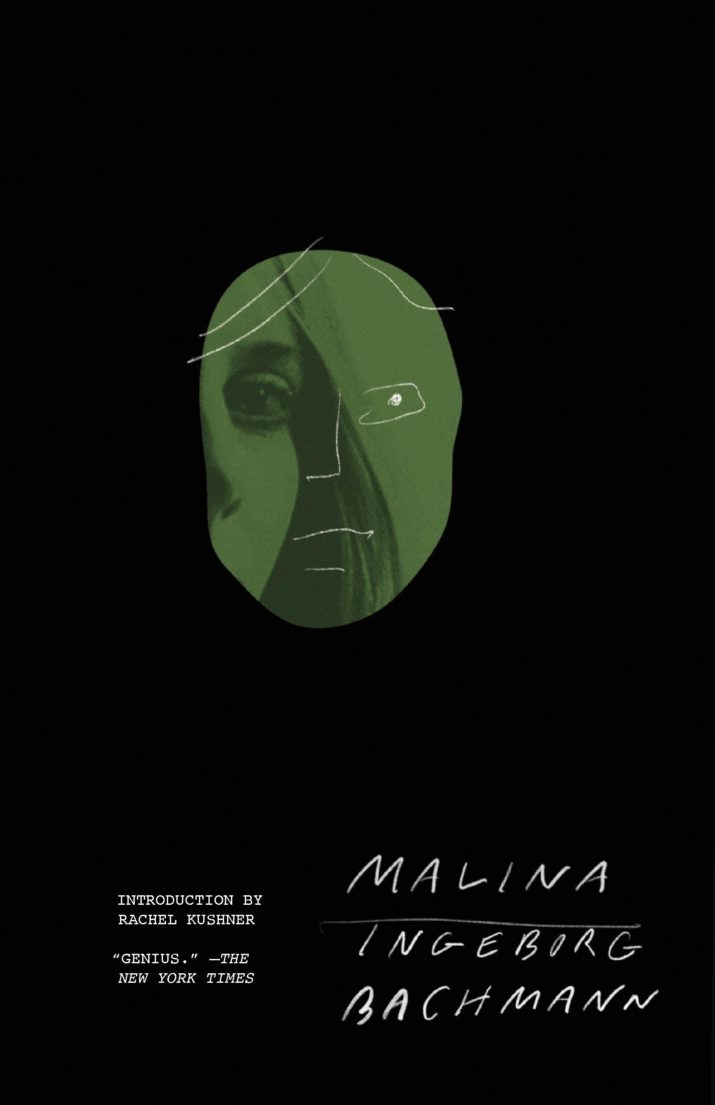
This is part of our special feature, Me Who? The Audibility of a Social Movement.

As a child, Ingeborg Bachmann (1926-1973)—novelist, librettist, radio-dramatist, essayist, and poet—watched as the Nazi’s marched into her hometown in Austria. She was only eleven years old, but the experience stayed with her and exposed her to the fragile border between the civility of the everyday and the violence of war. Her own father was a member of the Nazi party, while she grew up to be a staunch pacifist dedicated only to writing. After the war, she emerged onto the literary scene in the German-speaking world with poetry that fiercely surveyed the limits of language, and the potential of writing in the aftermath of the Second World War.
In time, Bachmann became one of Austria’s most revered literary figures. She was greatly admired by a younger generation of writers, including Thomas Bernhard, Elfriede Jelinek, and Fleur Jaeggy, and was affiliated with the famous avant-garde collective “Gruppe 47,” which included such illustrious members as Günter Grass, and the poet Paul Celan, with whom Bachmann had a prolonged and tortured love affair, memorialized in her and Celan’s letters to each other. She died tragically, at the age of 47, in a hospital bed in Rome, from burns she sustained three weeks earlier, after falling asleep smoking.
Last summer, New Directions reissued Bachmann’s astounding first and only completed novel Malina, a sprawling, layered, brutal, and baroque piece of fiction, which explores the travails of female identity amidst the moral destitution of postwar Vienna. The novel, originally published in German in 1971, and first translated into English in the early 1990s, was intended to be the first in a three-part series called “Deathstyles” or “Ways of Death.” Although the trio was never finalized, Bachmann wanted these books to show how war does not exist as an isolated incident within history, but persists, imperceptibly, as a de facto part of our everyday existence. As she said in her 1964 Büchner Prize address: “The threat does not occur during war, in times of naked violence, of dominating survival but before and after, that is, during peace.”
For Bachmann, this ongoing threat was most clearly evidenced in the tormented relationships between men and women, a struggle which she meticulously explores in Malina. In the novel, we see the world entirely from the uneasy perspective of the book’s nameless female narrator, and every detail of this world is established under great mental duress. “I’m just afraid ‘today’ is too much for me, too gripping, too boundless, and that this pathological agitation will be part of my ‘today’ until its final hour.” Most of the action, which admittedly is limited, takes place inside the shifting rhythm of the narrator’s thoughts, and as a result we never learn the exact details of her situation, only that, like Bachmann, she is a writer living in Vienna, at work on a novel, which in a few uncanny ways resembles the one we are currently reading. She shares her apartment with a man named Malina, a lapsed writer now employed as a clerk at the Austrian Army museum, and is madly in love with Ivan, a Hungarian divorcé with two young sons who lives down the street.
On its own, Malina—with its three distinct sections, each encompassing an array of disjointed literary forms including: letters, plays, musical scores, dreams, and fairytales—is far too fragmented, subterranean, and oblique to offer its reader any kind of coherent social depiction. Rather, through this inventive profusion of forms, Bachmann allows the inner workings of the narrator’s thoughts to ring out as something singular, unadulterated, and true. It’s a narrative voice at once exceedingly savage, funny, and despairing, concerned with questions of time, memories, and love. The first section, “Happy with Ivan,” is devoted to showing the narrator’s intense and obsessive feelings for him; the way she spends her days in an anxious suspension between waiting by the phone for Ivan to call, smoking, and responding to overdue letters, which she will, however, never send. The narrator’s friendship with Malina is equally complicated although it is of a murkier nature. He seems to exist as a kind of internalized, rationalizing impulse within her, a voice incessantly prodding and correcting her at every turn. It is a diminished existence, and one that is disproportionately populated by Ivan and Malina.
Very little clarity is offered regarding the inter-personal dynamics between the narrator, and these two men. Ivan and Malina are always present in the narrator’s mind, but not very present to each other. Together, with the narrator, they are depicted as a kind of triangulated forcefield: “Ivan and I: the world converging. Malina and I, since we are one: the world diverging.” Sometimes, the strength of one attachment over the other relies simply on a question of grammatical positioning, of where exactly the narrator should place that most vital and fragile pillar of her identity the “I”: “One moment it’s Ivan and myself. Another moment: we. Then right away: you and I.” These shifting allegiances can result in head-splitting constellations, which ultimately render the narrator incomplete. Yet, she cannot help but feel that she needs both Ivan and Malina. Ivan for his “injections of reality,” and Malina for his equanimity and stabilizing presence.
Spend too long inside a mind made so porous, so open to the voices of others, and you’ll likely grow a little twitchy and anxious yourself, or perhaps, you might begin to feel a sense of deepening familiarity as you watch the mental leaps and wrenching adjustments required of the narrator, to reconcile her own reality to the one that is forced on her from outside.
In many ways, Malina might be regarded as the account of a woman driven to the brink of self-dispersal through the absolute colonization of her consciousness by male realities. The second section, “The Third Man,”—a title Bachmann lifted from Carol Reed’s 1949 film noir about corruption in post-war Vienna—displays the severe psychic distortions of this colonization, while simultaneously exposing a collective past of war-time and destruction. Here, the narrator is pursued by a violent and omnipotent father-figure: “My father calmly takes the first hose off the wall…I am in the gas chamber, that’s what it is the biggest chamber in the world.” The narrator’s personal memories of incest and abuse are interwoven with scenes of deportation, concentration camps, persecution, extermination, war. “This,” she says “is the cemetery of the murdered daughters,” a hellish place where female protest, and screams of resistance, “No! No! Non! Nyet! Nyet! Nyet! No! Ném! Ném! Nein,” are irrefutably silenced.
These scenes of violence are balanced against conversations between the narrator and Malina staged as dramatic dialogue. “How am I ever supposed to find peace?” the narrator asks. “It’s war. And you are the war. You yourself,” Malina responds. In the third and final section, “Last Things,” these conversations speed up and coarsen. The narrator talks to Malina about the burden of living with the knowledge of what happened during the war, about complicity, shame, and womanhood. “A woman has to ‘shelter her real feelings in the ones she’s invented,” she says, while men should be “considered an incurable clinical case.” The more she talks, the more agitated her speech gets; her thoughts pivot, accelerate, and break down, which Bachmann underscores through her use of musical annotations (fortissimo, accelerando, crescendo). The disintegration of language both foreshadows and sets off the feverish unraveling of the narrator’s self, which constitutes the novel’s mysterious finale performance, in which first her things go missing, and then she herself disappears into a crack in the wall of her apartment.
How to sum up a novel as formally inventive and harrowing as Malina? What have we learned? What kind of development has the narrator undergone? Such questions do little but attempt to shoehorn this magnificent and unruly book into the narrow space of conventional fiction. We know just as little by the end of the novel as we did at the beginning, but perhaps we are the ones, rather than the narrator, who come out changed? In Malina, Bachmann reproduces the narrative effects of a female consciousness under extreme pressure. The result is a dazzling and intense shock to the reader’s system.
Maya Solovej is a writer living in Brooklyn. Her work has appeared in The Brooklyn Rail, The Rumpus, and Atlas Magazine (a Danish publication). She holds a master’s in Modern Literature from Goldsmiths, University of London.
Malina
By Ingeborg Bachmann, translated by Philip Boehme
Publisher: New Directions
Hardcover / 283 pages / 2019
ISBN: 978-0811228725




